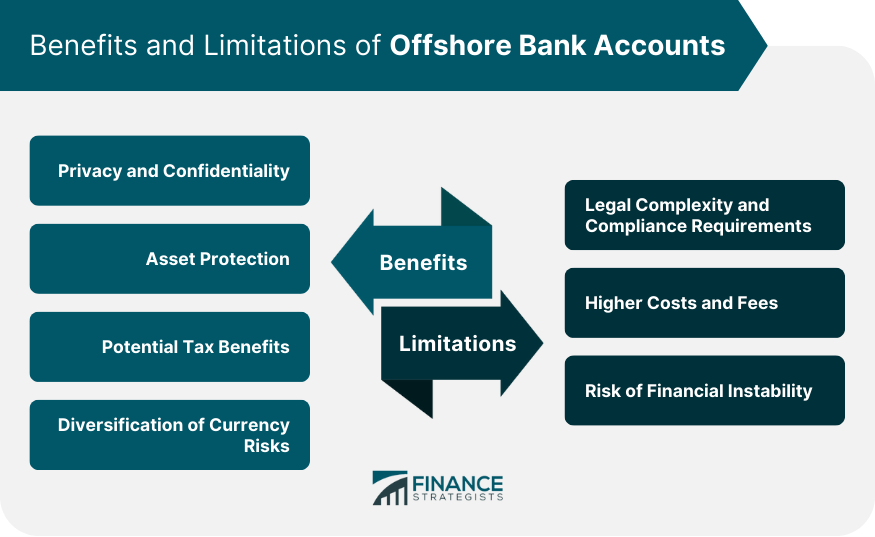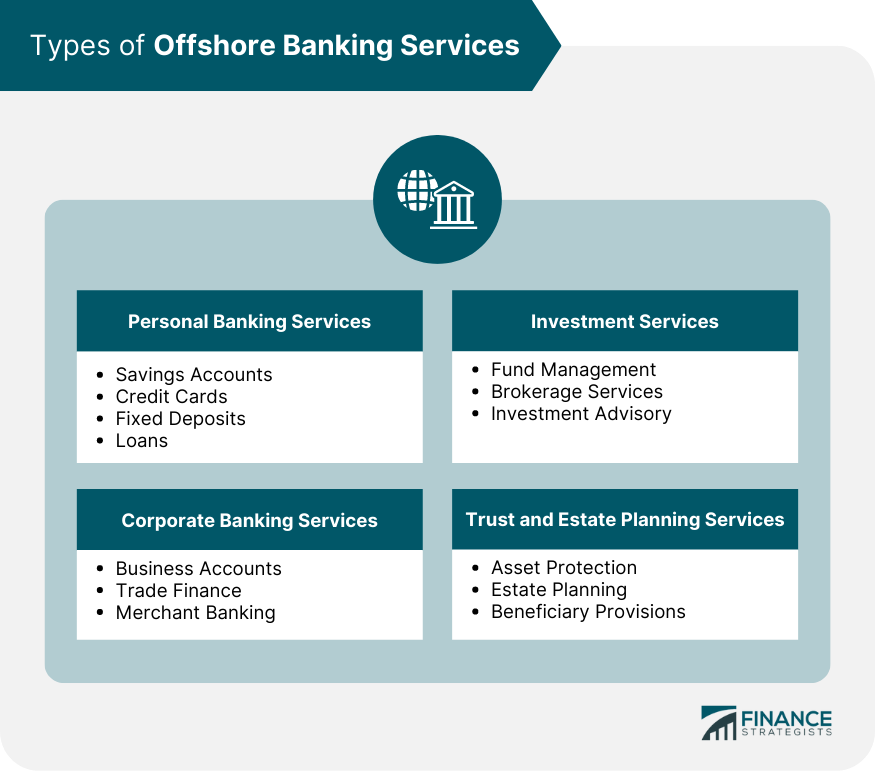Offshore Company Formations and Banking: Can You Set Up Bank Accounts Online?
Debunking Offshore Business Formations: Just How They Operate and What to Anticipate
Offshore company formations can seem complex and enigmatic. Offshore Company Formations. These entities, often developed for tax obligation benefits and personal privacy, run under unique legal frameworks. Business owners might discover themselves navigating via a puzzle of regulations and conformity demands. Comprehending the complexities is vital for success. What are the actual advantages? What are the possible mistakes? A closer examination exposes the nuances that can affect decision-making considerably
Comprehending Offshore Companies: Types and meanings
Offshore firms are entities developed in a territory beyond an individual's or service's main nation of residence, usually for purposes related to tax optimization, possession defense, or governing benefits. These companies can take different types, including minimal responsibility firms (LLCs), worldwide service firms (IBCs), and offshore trusts. Each type serves certain functions and interest various needs.
Restricted responsibility business supply owners with protection from personal liability, while global service firms are prominent for their flexibility and very little coverage needs. Offshore counts on, on the various other hand, are made use of largely for estate preparation and property defense.
The option of territory significantly affects the company's procedures, as some areas supply much more beneficial legal structures and privacy securities. Offshore Company Formations. Recognizing the distinctions between these types is essential for individuals and businesses taking into consideration overseas frameworks, as each choice carries various implications for governance and conformity
The Benefits of Establishing an Offshore Company
Establishing an offshore business can give numerous advantages, specifically for those seeking to improve their financial methods and shield their possessions. One substantial advantage is tax optimization; several territories offer favorable tax rates or exceptions, permitting companies to retain even more earnings. In addition, offshore firms can provide a layer of personal privacy, shielding the identifications of proprietors and shareholders from public examination.
One more advantage is possession defense. By placing possessions in an offshore entity, individuals can safeguard their wide range from possible legal cases or political instability in their home nations. This framework additionally facilitates international organization procedures, enabling easier accessibility to diverse clients and international markets.
Additionally, the establishment of an overseas business can improve reputation and stature, appealing to customers that value global company techniques. In general, these benefits make offshore business formations an eye-catching choice for businesses and individuals going for financial development and safety.
Secret Factors To Consider Before Developing an Offshore Entity
Prior to creating an offshore entity, numerous important variables need to be assessed. Lawful compliance needs, tax ramifications and benefits, along with territory selection, play a considerable role in the decision-making procedure. Recognizing these factors to consider can assist organizations and people navigate the complexities of offshore business formations efficiently.

Lawful Compliance Demands
When considering the formation of an offshore entity, understanding lawful conformity requirements is necessary to guarantee adherence to both international and neighborhood legislations. Potential company owner should familiarize themselves with guidelines regulating company enrollment, reporting obligations, and operational requirements in the picked jurisdiction. This consists of verifying the lawful needs for investors and directors, in addition to ensuring compliance with anti-money laundering (AML) and know-your-customer (KYC) policies. Additionally, companies should remain knowledgeable about any type of licensing requirements details to their industry. Involving neighborhood lawful and economists can supply valuable insights, making certain that all necessary documents is prepared and submitted appropriately. Ultimately, thorough understanding of legal compliance aids alleviate dangers and fosters a sustainable offshore procedure.
Tax Obligation Ramifications and Benefits
Countless local business owner think about the tax ramifications and advantages of developing an offshore entity as a critical aspect in their decision-making process. Offshore business can offer significant tax obligation advantages, such as minimized company tax rates, exemption from specific neighborhood taxes, and the capacity to defer tax obligations on foreign revenue. These advantages can bring about boosted productivity and capital, making overseas structures appealing for international service operations. Additionally, the possibility for tax treaties may further decrease tax obligation responsibilities. It is important for company proprietors to understand the complexities entailed, including conformity with both international and local tax guidelines. Involving with tax specialists is a good idea to navigate these intricacies properly and assure suitable tax preparation techniques.
Jurisdiction Selection Variables
What aspects should one think about when selecting a territory for overseas company development? Trick factors to consider include tax effectiveness, governing setting, and political security. Territories with beneficial tax routines can greatly influence success. The regulatory landscape ought to provide flexibility and ease of compliance, permitting for efficient service procedures. Political security is important, as it assures the security of possessions and continuity of procedures. Additionally, the track record of the jurisdiction can influence client trust and business partnerships. Availability to banking solutions and the availability of specialist support solutions are also essential. Understanding neighborhood legislations concerning privacy, coverage, and possession requirements is vital to ascertain that the offshore entity straightens with the business proprietor's objectives and legal obligations.
The Refine of Establishing an Offshore Business
Establishing up an overseas firm includes a series of strategic actions that require cautious preparation and conformity with global regulations. A private need to select an ideal jurisdiction that straightens with their organization purposes and supplies desirable tax obligation advantages. Complying with territory Click This Link option, the following step is to select a distinct business name and prepare the needed documents, including posts of unification and investor agreements.
When the documents is all set, it must be sent to the appropriate authorities together with the required costs. After approval, the firm will get a certification of consolidation, officially developing its lawful presence. The specific have to after that open up a company bank account to facilitate economic deals.
Preserving an overseas firm involves adhering to ongoing conformity needs, such as yearly reporting and tax responsibilities, which differ by jurisdiction. Recognizing each step is important for a successful offshore business formation.

Regulative and legal Framework for Offshore Companies
While developing an offshore business can provide considerable advantages, it is necessary to navigate through the intricate lawful and governing structure that governs such entities. Each territory has its very own collection of laws that dictate everything from business formation to taxation and compliance demands. These policies are developed to avoid unlawful tasks, such as cash laundering and tax obligation evasion, and commonly call for detailed documents and transparency.
Crucial element of this structure include the need of selecting regional supervisors, preserving a licensed office, and sticking to yearly coverage obligations. In addition, numerous jurisdictions enforce particular licensing needs for particular business tasks. Understanding these lawful specifications is critical for ensuring conformity and mitigating dangers linked with penalties or legal disputes. Consequently, involving with lawyers who concentrate on overseas business can help in steering via this complex landscape, ultimately promoting a compliant and effective offshore company procedure.
Common Misunderstandings Regarding Offshore Companies
Many individuals hold mistaken beliefs concerning offshore business, usually corresponding them with tax evasion and unlawful activities. It is important to acknowledge that these entities can run legitimately within a structure developed for legitimate organization methods. Making clear the legal standing of offshore companies can aid eliminate these myths and promote a much more exact understanding of their purpose.
Tax Evasion Misconceptions
Despite the expanding popularity of offshore firms, misunderstandings concerning their use for tax obligation evasion linger. Lots of people incorrectly believe that establishing an offshore entity is solely a means to avoid tax obligations. Overseas firms are frequently utilized for reputable purposes, such as property defense, global service expansion, and investment diversification. The assumption that all overseas tasks correspond to immoral tax obligation evasion overlooks the complexities of international tax regulations and conformity needs. In addition, the vast bulk of overseas jurisdictions have implemented procedures to fight tax evasion, promoting openness and details exchange. This mischaracterization can deter legit businesses and capitalists from checking out the possible advantages of offshore business formations while bolstering an unfavorable preconception surrounding these entities.
Legal Status Clarified
The lawful standing of this website offshore business is often misconstrued, resulting in a variety of misunderstandings. Numerous think these entities operate in a lawful grey location, thinking they are naturally illegal or dishonest. In fact, offshore companies are reputable organizations formed under the laws of certain territories, made for different factors, including asset defense and market expansion. One more usual misconception is that overseas firms avert tax obligations totally; nevertheless, they go through the policies and tax responsibilities of their home countries. Additionally, some individuals think that offshore firms can be easily made use of for money laundering or prohibited activities. While misuse can take place, a lot of territories implement stringent conformity and openness regulations to alleviate such wikipedia reference threats, ensuring that offshore business run within legal structures.

Taking care of and Running Your Offshore Company Successfully
Properly handling and running an offshore firm calls for a tactical technique that balances conformity with local regulations and the quest of service objectives. Effective offshore monitoring involves comprehending the jurisdiction's tax obligation laws, reporting needs, and operational policies. Employing neighborhood professionals, such as accountants and lawful experts, can provide indispensable understandings into passing through these intricacies.
In addition, developing clear interaction channels and operational protocols is vital for maintaining performance. Using innovation for project management and collaboration can boost performance, while normal performance evaluates guarantee positioning with tactical objectives.
Furthermore, maintaining durable monetary records is important, as transparency promotes trust with stakeholders and complies with international criteria. Being versatile to modifications in regulation or market conditions enables overseas business to pivot successfully, ensuring lasting sustainability and growth. By sticking to these concepts, entrepreneur can maximize the advantages of their offshore ventures while mitigating threats.
Frequently Asked Questions
Just how much Does It Cost to Maintain an Offshore Business Each Year?
The expense to preserve an offshore business annually varies significantly, usually ranging from $1,000 to $5,000, depending upon territory, solutions called for, and compliance commitments. It is necessary to take into account added costs for particular demands.
Can I Open Up a Savings Account for My Offshore Company Remotely?
Opening up a checking account for an offshore firm remotely is generally possible. Requirements may vary by jurisdiction, usually demanding documentation and verification processes, which can complicate the remote application experience for individuals.
Exist Certain Countries Understood for Easier Offshore Company Formations?
Particular nations, such as Belize, Seychelles, and the British Virgin Islands, are renowned for their structured procedures and desirable guidelines concerning offshore business formations, bring in entrepreneurs seeking efficiency and confidentiality in organization procedures.
What Kinds of Companies Are Best Suited for Offshore Companies?
Specific companies, such as investment, consultancy, and e-commerce companies, frequently gain from offshore business because of tax advantages, personal privacy, and regulatory versatility - Offshore Company Formations. These entities typically prosper in territories that advertise desirable business settings
Exactly How Can I Guarantee Conformity With Neighborhood Laws When Operating Offshore?
To guarantee compliance with regional legislations when running offshore, it is vital to engage legal specialists, conduct comprehensive research study on territory regulations, and preserve clear financial records, therefore reducing dangers related to non-compliance.
